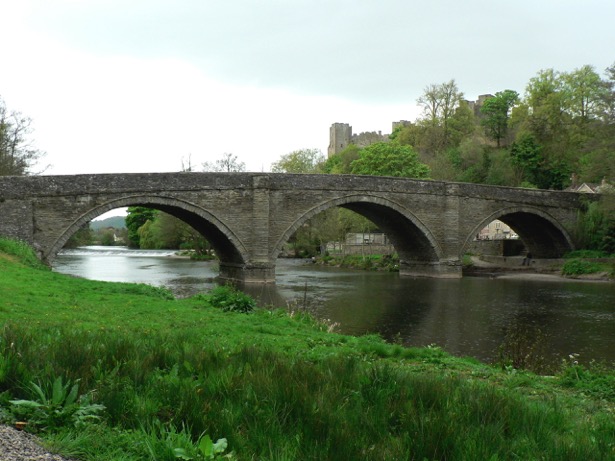Two birds and a bag full of stones
02 11, 09 Filed in: Strange Days | Articles

It had been a long walk through the Shropshire hills in search of fossils and, with a good morning’s work completed and a bag full of rocks, I came down through the contours to Ludlow in search of a pub lunch.
Checking the map, I noticed a path beside an interesting looking woodland stream that was only slightly out of the way between fossils and lunch. To fill the miles I decided to do a spot of birdwatching on my way down and was looking forward to a light hike along it in search of Cinclus cinclus - the Dipper - a small brown bird that looks somewhat like a stunted, barrel-chested Blackbird with a white bib. Dippers are tenacious birds that often perch on rocks in the middle of fast-flowing shallow streams with their tails cocked like oversized Wrens. They feed by diving and swimming - even walking - underwater to catch aquatic invertebrates; at least, that’s what I’ve surmised from the bird books because, in all my years of watching, I’ve never actually seen one.
His one-man mission to spot our feathered friends, identify and then loathe them deeply seemed to be going well.
Despite what the field guides may tell you, the most common appearance of a Dipper is as a line drawing on a ‘context board’ erected by the river’s edge - those mounted information panels that feature paintings of bucolic loveliness, of habitats teeming with biodiversity, the preferred modern term for ‘life’. The boards are usually installed after a programme of works to dredge the last few shopping trolleys out of a river and present an optimistic vision of a habitat created by a partnership of organisations - organisations with striking logos designed to fit along the bottom of a context board. This particular panel was illustrated with an artist’s impression of what it would look like if all the interesting organisms from thirty miles around were condensed into a 300 yard stretch of river. I’ve long realised that anywhere that you can hear the white noise rush of a weir you’ll see a Dipper on a nearby context board and absolutely none in the river.
Moving on from the board, I scanned the river itself to no avail and decided to walk along the river a while. It wasn’t long before I saw someone else along the path, binoculars to his eyes, apparently studying a Mallard on the bank. I was a long way from home and looking for something specific, so what better than a local birdwatcher happy to share his insight into the birds on his patch? I made my way over and asked him if he knew of any Dippers on the river. It wasn’t long before I realised that I was talking to someone I now regard to be not only the world’s most unsuccessful birdwatcher, but - on account of his slightly swivel-eyed comportment - possibly its most drunken one as well.
He was almost completely unintelligible, except for the occasional ornithological English noun forming the victorious crescendo of an otherwise unfathomable sentence, its precise meaning slurred away like mud off a boot.
“Hrrurr gretsch pfftdf, Wagtail, mrmpgghaw (cough) azzerbunmhher, Swan”, was the rough gist of his part of the conversation which, at one point, inexplicably veered into “hhrghnngh wozzun hang glider” as he pointed at a passing microlight in the sky.
Joining the Dipper, between achingly rare orchids and damsel flies, a Heron and Mute Swan on the context board was the ubiquitous Mallard, a species that my new friend was keen to tell me his opinion of. After about five minutes wishing I was anywhere else but there, my ears had at last started to become accustomed to the drawl of drunken expletives and general ill-will towards the world in general and winged creatures in particular: “Them ducks, frawghhhar, gnmmph vicious bastards, you harrrrunt to look out for them.”
It had started to rain by this point, but the inebriated aviphobe was in full bird hating mode; it turned out that he recoiled from blackbirds, swallows and wagtails also - their specific crimes were not spoken of, but he despised them all the same. His one-man mission to spot our feathered friends, identify and then loathe them deeply seemed to be going well. He was just raising ire at pigeons and pouring scorn on crows when he paused for a moment and asked, “You RSPB, then?” Surprised and, indeed, in fear of being branded a collaborator, I assured him that I wasn’t. Mellowing a little he explained that he hadn’t seen a Dipper for years, which is probably just as well for the Dipper.
I pulled myself away, leaving him on the river bank, wandering away as nonchalantly as I could - at one point, I had fantasized about throwing some of my fossils at him and legging it down the path. The last I saw of him, he was chasing a duck.
blog comments powered by Disqus
